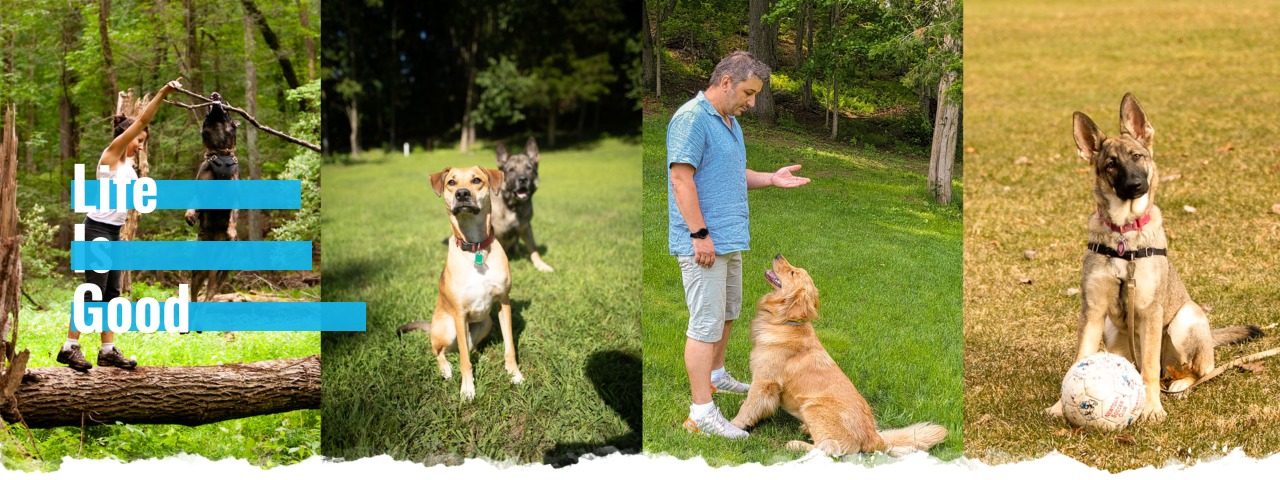Dog Training For Dogs: Proven Techniques to Suppress Unwanted Habits
Leading Dog Training Strategies for Every Stage of Your Canine's Life
Reliable canine training is necessary at every phase of a canine's life, as each phase provides special obstacles and possibilities for growth - Dog Training For Dogs. From the fundamental bonding methods necessary for young puppies to the customized techniques needed for elderly dogs, comprehending these crucial periods can significantly enhance the human-animal bond. It is vital to recognize that training must evolve together with a pet dog's growth, guaranteeing that approaches remain reliable and relevant. What specific techniques can be utilized to attend to the varying demands of your dog as it matures? The answer may amaze you.
Young Puppy Training Essentials
Puppy training essentials prepared for a mannerly grown-up pet dog and include several key components that should not be neglected. The initial stage of training concentrates on developing a solid bond between the puppy and its owner, which is vital for efficient communication. Socialization is paramount; revealing pups to numerous atmospheres, people, and other pets assists them establish confidence and adaptability, reducing the chance of behavior problems later in life.
Standard commands, such as sit, stay, and come, develop the foundation of obedience training. Making use of positive support methods, such as treats and praise, encourages desired actions and promotes a favorable discovering experience. Consistency in commands and training sessions is crucial, as pups flourish on regular and structure.
In addition, home training is an important facet of puppy training. Developing a normal schedule for shower room breaks and using assigned locations can help lessen crashes and promote great behaviors. In general, a well-rounded method to puppy training, including home, obedience, and socializing training, establishes the stage for a well-adjusted grown-up pet, guaranteeing an unified connection in between the pet dog and its owner.
Teenage Actions Monitoring
As puppies mature into teenagers, their actions can change significantly, commonly offering brand-new challenges for owners. This developmental stage, normally taking place in between 6 months and two years, is noted by enhanced power degrees, inquisitiveness, and a burgeoning sense of independence. Understanding these adjustments is crucial for effective behavior monitoring.
Teens may display rebellious tendencies, such as ignoring commands they formerly grasped or taking part in damaging behaviors. Uniformity in training stays critical; reinforcing found out actions with positive support can assist counteract these obstacles. Brief, engaging training sessions are necessary to keep their rate of interest and focus.

In addition, establishing an organized routine can dramatically boost a teen canine's sense of security. Normal workout is important to direct their energy favorably, lowering the probability of unfavorable behaviors. By using these methods, owners can properly navigate the intricacies of teen behavior, cultivating a well-adjusted, pleased canine friend.
Adult Pet Obedience Methods

Positive support stays a key method; gratifying good actions with treats, praise, or playtime encourages conformity. Consistency is critical; the exact same commands and rewards must be used by all relative to prevent confusion.
Integrating training right into everyday regimens can also work. Practice commands throughout strolls or meal times, permitting training to blend effortlessly right into everyday life. Participating in organized activities, like agility training courses or obedience classes, can additionally boost a canine's abilities while giving valuable socializing opportunities.
It is crucial to identify that grown-up dogs may additionally exhibit stubbornness or complacency. Changing training strategies to keep their interest, such as varying rewards or introducing brand-new commands, can help receive motivation. On the whole, a recurring dedication to obedience training will promote a mannerly and well balanced grown-up dog.
Elderly Pet Adjustment Methods
Acknowledging the distinct needs of senior dogs is important for ensuring their convenience and health. As pets age, they might experience a decrease in wheelchair, vision, and cognitive feature, requiring tailored adaptation approaches.
First, consider modifying the living setting. Make certain that the home is available and safe; get rid of barriers and supply non-slip surfaces to stop falls. Additionally, take into consideration making use of ramps or steps to aid them access their favored areas.
Secondly, workout ought to be adjusted to make up reduced stamina and joint wellness (Dog Training For Dogs). Take part in much shorter, a lot more frequent strolls, and integrate mild activities like swimming, which can be advantageous for arthritic joints
Moreover, psychological stimulation stays important. Use straightforward challenge toys or take part in scent job to maintain their minds sharp, while avoiding frustrating tasks that might annoy them.
Finally, routine vet exams are important to keep an eye on health changes and change care routines read the full info here appropriately. By carrying out these adjustment approaches, you can enhance the quality of life for your senior dog, ensuring they age gracefully and comfortably.
Lifelong Knowing and Enrichment
While canines of read what he said any ages take advantage of learning and mental excitement, long-lasting enrichment is especially essential for preserving cognitive health and psychological health in both elderly and younger canines. Engaging tasks not only enhance a dog's lifestyle but also strengthen the bond between the pet and its proprietor.
Enrichment can take different types, including interactive toys, problem feeders, and aroma work, which promote a canine's senses and urge analytic. Normal training sessions, incorporating new commands or methods, maintains their minds sharp and promotes a sense of success. Socialization with other pets and individuals is similarly crucial, as it helps avoid behavior problems and promotes flexibility.
Moreover, incorporating exercise into a dog's regimen is crucial for general health. Activities like dexterity training, fetch, or long strolls provide both physical and mental stimulation, ensuring pet dogs continue to be pleased and involved.
Lastly, consider varying the setting by introducing new areas for playdates or strolls. This change can reignite a canine's curiosity and interest for exploration. Lifelong discovering and enrichment not only add to a meeting life but likewise advertise an unified connection with your canine buddy.
Verdict
Effective canine training methods advance throughout a canine's life, attending to the unique requirements of each developing phase. From establishing foundational skills in young puppies to handling teenage behaviors, reinforcing obedience in adults, and adapting approaches for seniors, a detailed strategy ensures ideal interaction and actions. Emphasizing regular mental stimulation, socializing, and exercise promotes a balanced and fulfilling life for pets. Eventually, constant application of these methods adds to an unified partnership in between pet dogs and their human buddies.
Effective dog training is vital at every stage of a pet's life, as each phase redirected here presents one-of-a-kind difficulties and chances for growth.Puppy training basics lay the groundwork for a mannerly adult dog and entail a number of essential components that need to not be overlooked. On the whole, a well-rounded approach to puppy training, including obedience, socialization, and house training, sets the stage for a well-adjusted adult pet, making certain a harmonious partnership between the animal and its owner.
Many canine proprietors might find that grown-up pet dogs, while generally more steady in actions than their adolescent counterparts, still call for regular training to maintain obedience and great manners.Efficient pet training techniques develop throughout a pet dog's life, addressing the distinct requirements of each developing phase.